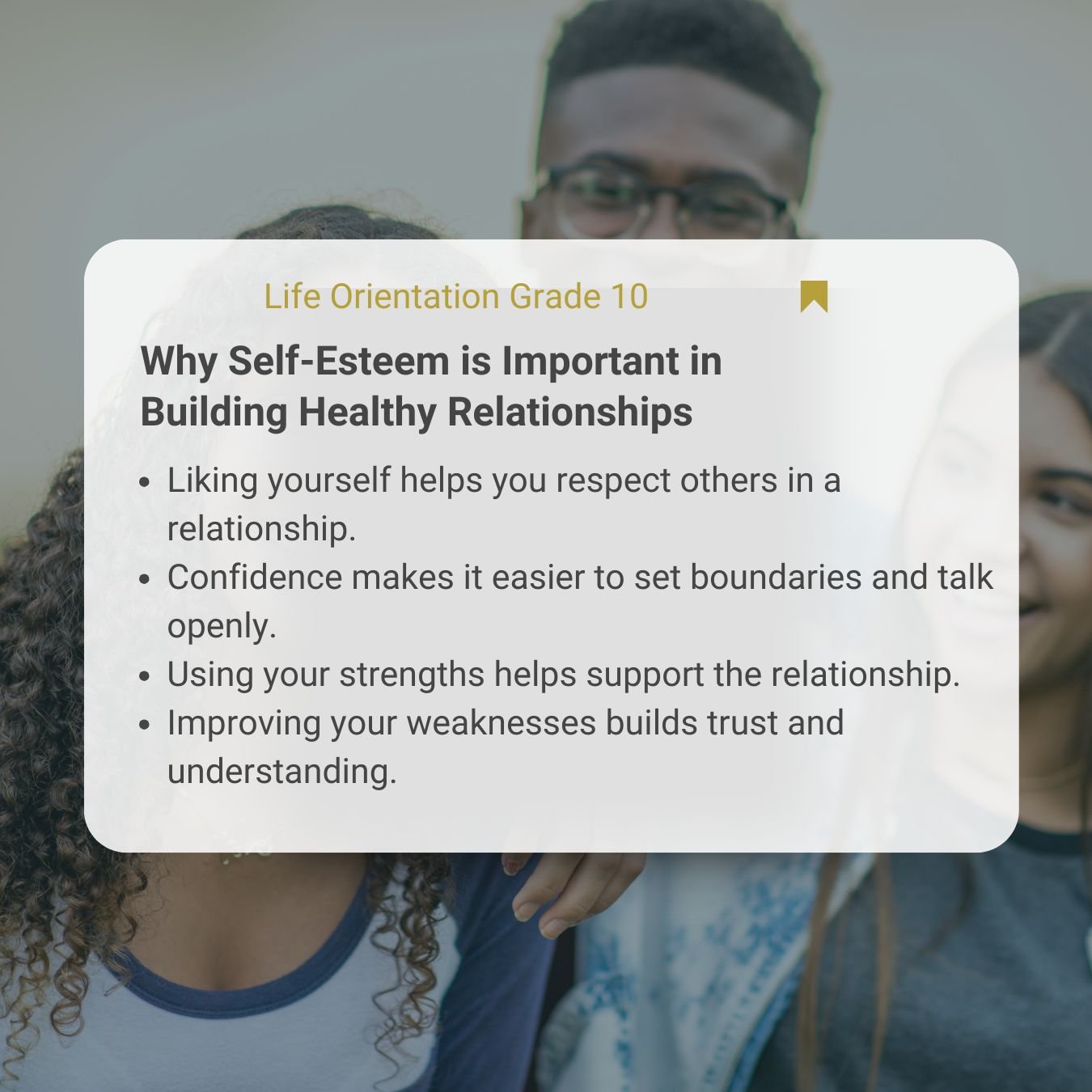On this page, we learn about why self-esteem is important in building healthy relationships. This is the learning content for Grade 10 Life Orientation term 1 work, under development of the self in society topic.
Self-Esteem Definition – LO Grade 10
When you are asked to define what self-esteem is, in Life Orientation Grade 10 subject, you should provide the following definition:
Self-esteem is how you feel about yourself – how good and positive you are.
Self-esteem can have a positive and a negative effect on how you feel:
- Positive effect – High self-esteem: you feel good about yourself
- Negative effect – Low self-esteem: you feel bad about yourself
Why Self-Esteem is Important in Building Healthy Relationships

Self-esteem is important in building healthy relationships because:
- when someone has high self-esteem, they like, accept, and believe in themselves, which helps them build mutual respect with others.
- They feel confident, which allows them to set boundaries and communicate effectively.
- By working on their weaknesses, they demonstrate a willingness to grow, which strengthens trust and understanding in the relationship.
Below, we look at why self-esteem is important in building healthy relationships. We will approach this by looking at high self-esteem vs low self-esteem, in relation to why their importance in building or destroying relationships:
| High Self-Esteem Person in Relationships | Low Self-Esteem Person in Relationships |
|---|---|
| Likes, accepts, and believes in oneself, which leads to healthy relationships with others | Struggles to accept or believe in oneself, which leads to fewer relationships |
| Feels confident, which helps in setting boundaries with friends. | Feels insecure, often leading to people-pleasing or unhealthy dependency. |
| Knows their strengths and contributes positively to the relationship. | Focuses on weaknesses, which can lead to self-doubt and conflict with others. |
| Takes responsibility for their actions and communicates openly with others. | Avoids accountability, making communication difficult with others. |
| Embraces challenges and grows with their partner. | Fears challenges, avoiding growth in the relationship. |
| Maintains healthy, trusting connections with others. | Struggles to trust others, leading to misunderstandings and mistrust. |
| Sets realistic expectations, creating a balanced partnership with others. | Feels unworthy, leading to imbalance and unrealistic expectations. |



